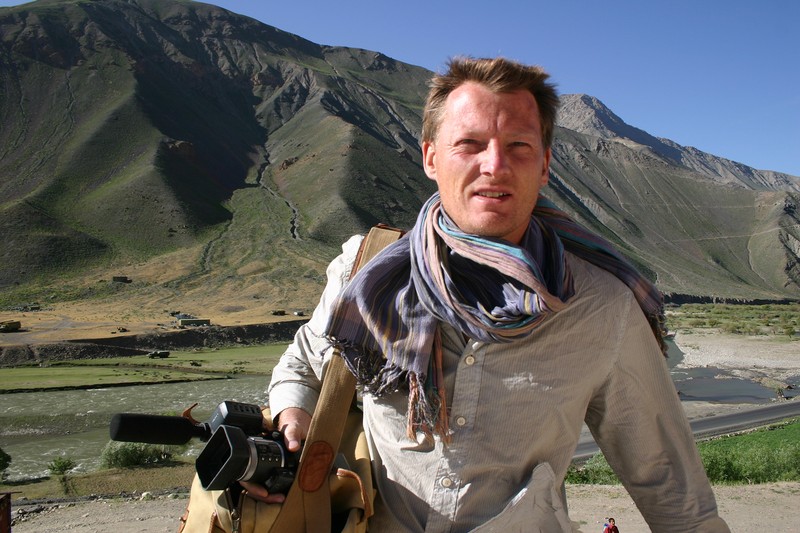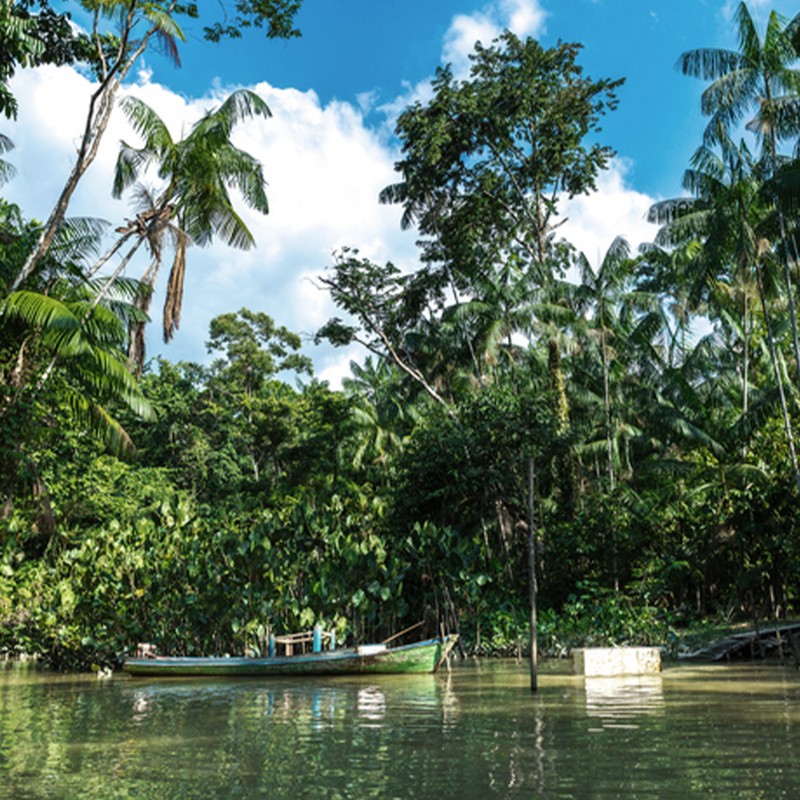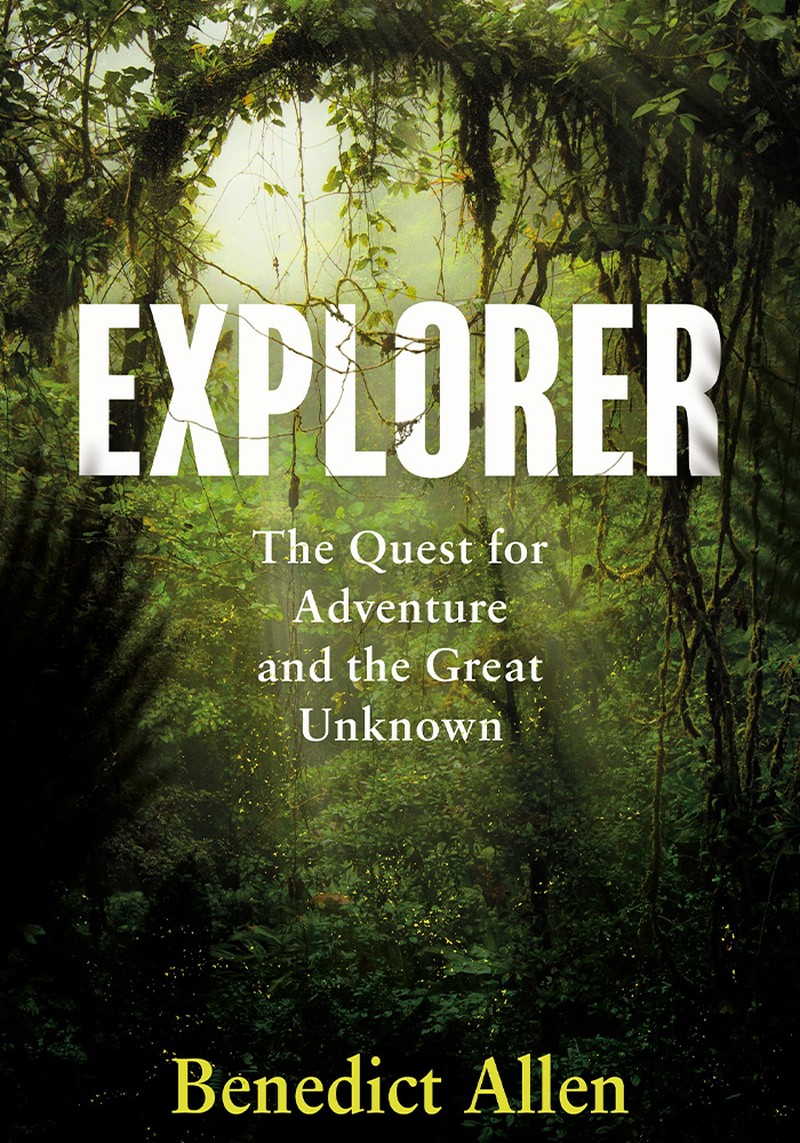My Interesting Job: Benedict Allen – Explorer
My dad was a test pilot. He used to fly Vulcan bombers – the ones that used to carry Britain’s nuclear deterrent – low over our house. He was such a gentle character, but he was also fine with pushing himself to the limit. I remember him bringing weaverbird nests back from Africa once. That’s probably what gave me the idea to become an explorer.
I kept getting told the age of exploration was over. ‘Even if you can find somewhere to go, there’ll be no money in it.’ I decided I’d give it a go just once, just to see. I saved a bit of money from a warehouse job and went to the Amazon. It was a bit of disaster – I got attacked by goldminers and had to walk out of the forest day after day because I had nothing to survive on – but it made me want to understand the forest.
The only way I could understand the forest was to learn from local people. I didn’t have any money, so all I could do was learn some skills from them, then do an exhibition about them when I came back. Back in the 80s, the window for learning from these people was still just about open and I knew I had to take the opportunity while it still existed.
I had to prove to them I wasn’t a threat. Their major experiences with outsiders were not positive ones: they tended to involve strangers extracting resources from their homes. By persuading elders that I really was here to learn – and by playing with children, who tended to be the ones who were receptive and had the time to play – I could convince people I wasn’t an intruder who needed to be killed.
Piranhas are not man eaters. At least not in my experience. Living in the rainforest, I learnt all sorts of practical skills, including shelter building and how to find free food. Fishing was one way. I’d be standing in the water and piranhas would surround my feet, chasing the insects I used as bait. They never touched me. Maybe in dry season, if they’re cornered in a small pool, or if you’ve got a gaping cut on your feet, they might go for you, but they never went for me. I think they’ve got a reputation just because of their sharp teeth and probably because we love that kind of story. But perhaps the biggest thing I learnt is that the forest is not a dangerous place if you know what you’re doing. If you’re in the Amazon, your biggest threat is malaria – or drowning. It’s not piranhas or anacondas or anything like that.
You need communication skills to be an explorer. You’ve got to be resilient, of course, but being able to communicate is key – whether that’s through words or pictures or film. If you can’t describe your experience for someone else, it has no value to anyone else – you are a traveller not an explorer. If anyone wants to be an explorer today, I’d tell them to learn to be a photographer, a film maker or a writer, and find a new angle and voice to describe the world. That’s what I did – I had to become a pioneer of the video selfie because it was just me, my camera and the forest.
An explorer has to produce something of wider value. This is why polar athletes are not explorers – they are doing what they do to set records and that’s it. Explorers today tend to be scientific specialists. The land of earth has almost all be discovered, so there are no more journeys into the unknown – exploration today is more about understanding the misunderstood. You’re not putting a flag in a new territory for your queen and country. You’re more likely to be knowledge gathering for an obscure species of tropical insect.
I don’t accept sponsorship for expeditions. The idea of doing something sponsored by PG Tips or whoever is just a bit awkward and uncomfortable for me. I tend to make my money doing motivational speaking instead.
I don’t use GPS on my journeys or have a phone for backup. Lots of people don’t understand why and think I’m some sort of throwback figure. It’s actually because I want to disconnect. We are so interconnected today, encased in our echo chambers, the same ideas running around us again and again. It’s good to disconnect – we’re all so risk averse today. Obviously this is not easy and raises alarm bells for Mrs Allen but she is very forgiving when, for example, I was in the headlines for disappearing in New Guinea a few years ago.
The Namib Desert is one of my favourite places. I was the first person to walk the length of it. Just me and three camels. It was a nightmare to begin with – as so many of my expeditions are at first – but we learnt to trust each other. Those camels were so physically able and I could just navigate through hidden passages and oases. It was an immense freedom.
I had a similar experience with animals trying to cross the Bering Strait. I was on the Russian side wanting to get to Alaska. It was –35ºC and I had a pack of dogs that wasn’t listening to any of my commands. They gave me hell for the first month. I got frostbite on my fingertips, we were eating snow to get water, but gradually we got along and I started to feel more at home. It ended up being one of the best expeditions I’ve done because of that process of adaptation. To feel at home in somewhere so alien, where you have felt so vulnerable, is an amazing feeling of success.
I will be quite happy if I never go back to the swamplands of West Papua. When you’re in swamps, there’s no horizon. That makes it very hard because you can’t gauge your progress. It’s very easy to lose hope when you can’t see a way out. Then there’s the oppressive humidity and the threat of disease.
I had a near miss with Pablo Escobar. He was on the run back in the early 90s and I was in the Amazon, close to the Brazil-Peru-Colombia frontier. I could see the cocaine trade going on around me. Coca leaves were being taken across the river to be processed in secret labs. There was a lot of tension in the air as I was passing through in my canoe. One day it popped and I could feel the pressure waves as I think six bullets passed by my head. Luckily, I think these two guys were urban types from the cartel. They didn’t know what they were doing in their boat. Each time one of them picked up the gun, the other would lose control of the boat and they go round in circles. In different circumstances it would’ve been pretty comical. Eventually I made it into the forest, which was a place of safety for me again that day.
People have often been the biggest danger to me. Gold miners, loggers, drug lords – anyone who’s looking to exploit somewhere is going to be more dangerous than any creature. I have also been a danger to myself, pushing too hard. That happened on the Bering Strait, about six weeks in. I was halfway across the pack ice and needed to make a decision about pushing on or turning back. I went on about 200m ahead of my dogs and suddenly there was a blizzard. I couldn’t see my way back. That was a tough night, trying to stave off frostbite and stay awake, before I got back to them in the morning.
The impulse to explore becomes more of a danger as you get older. There’s a chance you allow yourself one final challenge and you’re not up to it. You have to be vigilant and not fool yourself that you can do everything you used to be able to do in your 20s. You have to keep in mind the wonderful pleasures of being at home and seeing your children. I actually went ten years without a trip before I took Frank Gardner – the BBC’s security correspondent – to find birds of paradise in Papua New Guinea, but that reminded me the impulse to head off was still there.
Papua New Guinea is a place where I’ve done some unusual things. I’ve been initiated as a crocodile man by the Niowra tribe. For six weeks, five times a day, some local young men and I were beaten, so I’m permanently scarred with ‘crocodile’ markings. I’m incredibly grateful to have been allowed to see this sacred ceremony – and I’m also now a ‘man as strong as a crocodile’.

I’m not telling anyone where I’m going next. My last trip was a very personal one to find some old friends in Papua New Guinea, but the newspapers knew what I was doing and the expedition became a vehicle for lots of people to push their own agendas about imperialism. I want to try and retain a bit of control this time.
Always look backwards. As an explorer, you’re looking forward at where you’re going, but you also have to know where you’ve come from. If you suddenly have to get out of somewhere, the best way is often to get out backwards. So I always keep in mind the chain of resources behind me: I’ll know that, if I have to retrace my steps, I’m two days from fresh water.
Everything you take on an expedition is absolutely essential. When something’s missing, it can be the difference between life and death. If you’re fishing for piranhas, you need wire because they can chew through a normal fishing line. On my first Amazon expedition, I made the beginner’s error of not having that piece of wire. I’ve not forgotten it since.
I always carry pictures of my children. Partly that’s to remind myself I’ve got to get back to them whatever happens. Partly it’s because I can pass them round people I’ve met, to show them I’m here as a friend.
You don’t have to go far for an adventure. I was at university in Aberdeen and you could just head off into the Highlands from there. A wet winter’s night in the Cairngorms can be dangerous – just half a day’s walk can get you into some serious trouble. It’s a good place to learn how to keep warm and dry, and find out a bit about your strengths and weaknesses. It’s also a great place to disconnect.
Touching the Void is the book – and film – I always recommend. It’s a seemingly obscure, unimportant expedition that suddenly becomes relevant to all of us. It gives a great perspective on our will to survive and what humans do in awful situations. It also shows that exploring is not just about getting to a summit; it’s the journey that tends to be interesting.
Explorer: The Quest For Adventure and the Great Unknown by Benedict Allen is out now. Buy it here.
All products on this page have been selected by our editorial team, however we may make commission on some products.
DISCLAIMER: We endeavour to always credit the correct original source of every image we use. If you think a credit may be incorrect, please contact us at [email protected].



